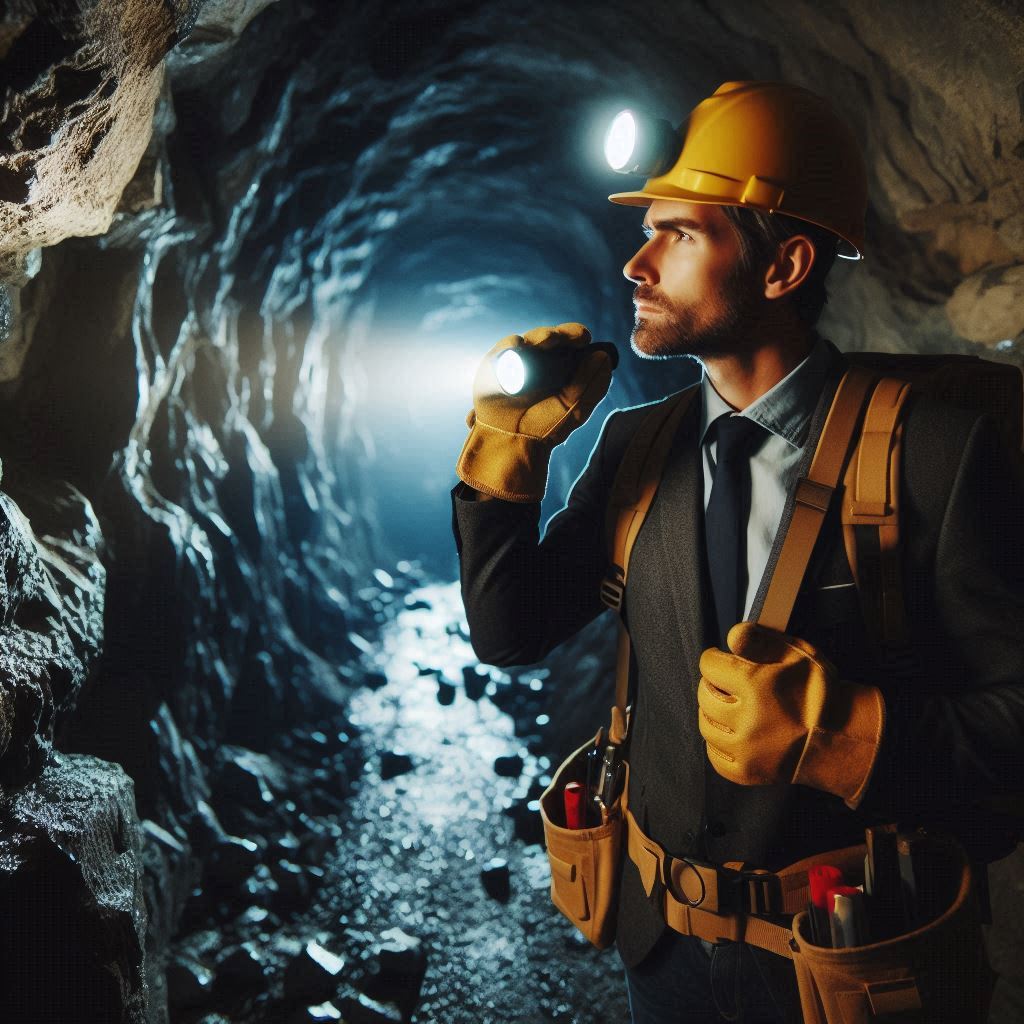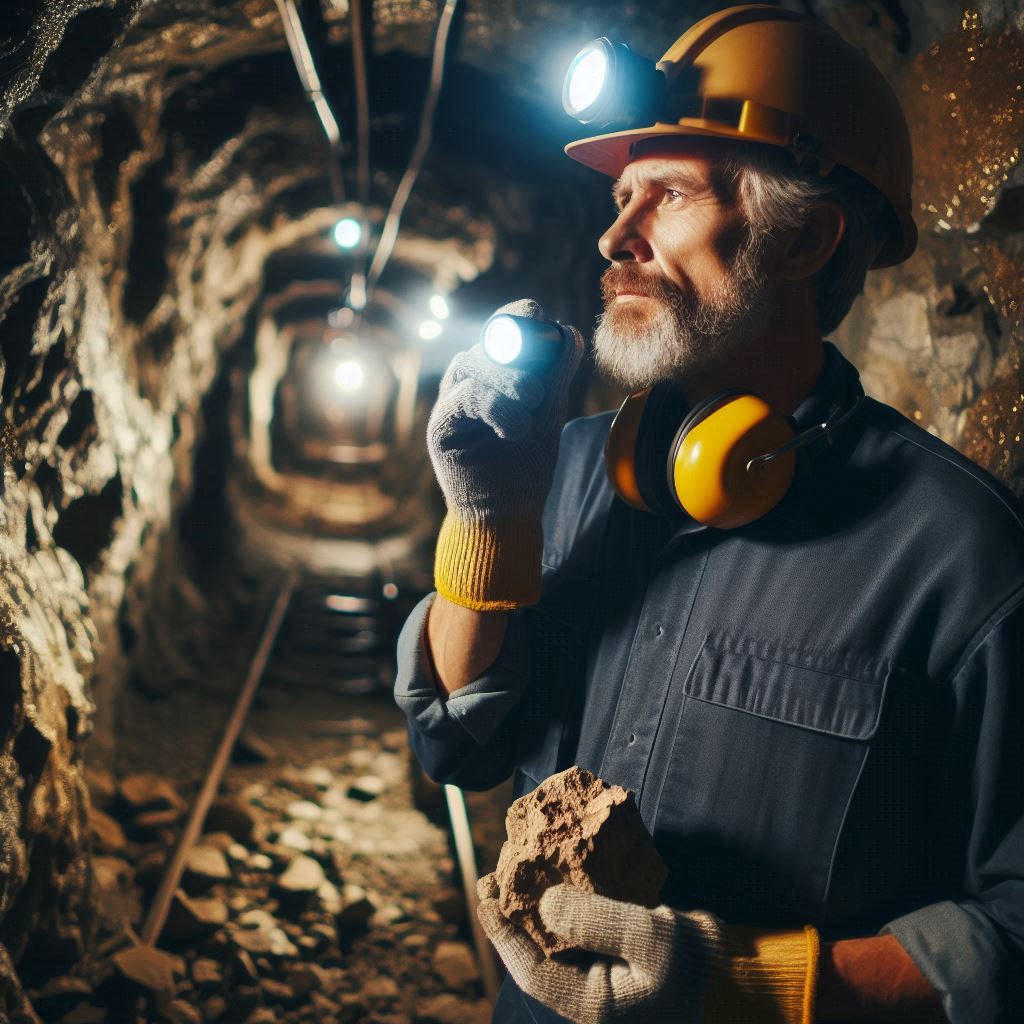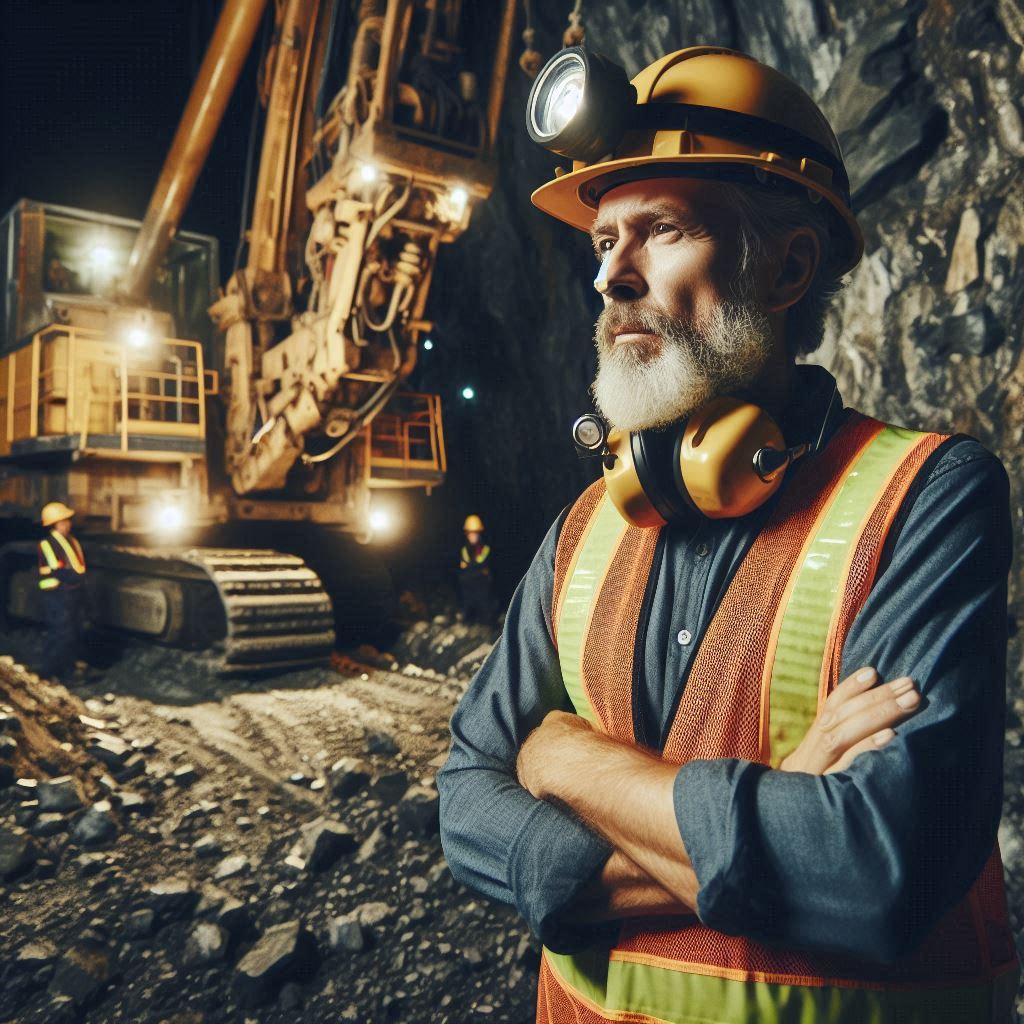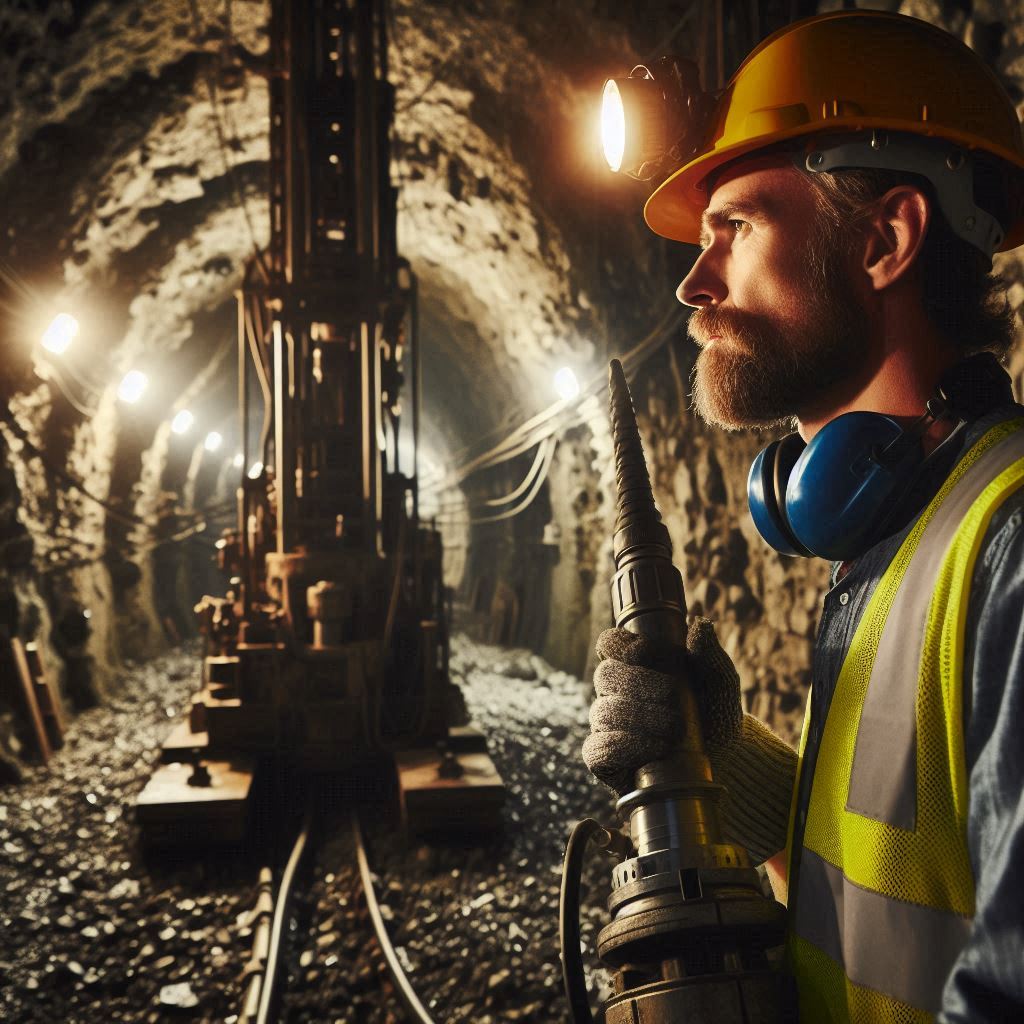Introduction
A mining engineer designs mines to extract minerals from the earth.
They plan and oversee mining operations, ensuring efficiency and safety.
Mining engineers play a crucial role in the industry by maximizing resource extraction and minimizing environmental impact.
Brief Explanation of What a Mining Engineer Does
Mining engineers are responsible for evaluating mineral deposits.
They conduct surveys to determine the feasibility of mining projects.
These engineers use advanced technology to design and plan mine layouts.
They ensure that mining operations are cost-effective and comply with safety regulations.
Mining engineers also supervise the construction of mines and manage the extraction process.
They work closely with geologists to analyze the geological aspects of mining sites.
Their role includes optimizing mining methods to enhance productivity.
Mining engineers are essential for transforming raw mineral deposits into valuable resources.
Importance of Mining Engineers in the Industry
Mining engineers are vital to the mining industry’s success.
They ensure that mining operations run smoothly and efficiently.
Their expertise helps in minimizing environmental impacts associated with mining.
Mining engineers develop strategies to reclaim and restore mined land.
They play a key role in implementing safety measures to protect workers.
By optimizing mining processes, they help reduce operational costs.
Mining engineers also contribute to technological advancements in the industry.
Their work supports the sustainable development of mineral resources.
The industry relies on their skills to meet the growing demand for minerals.
Mining engineers ensure that mining projects are economically viable and environmentally responsible.
Generally, mining engineers are indispensable in the mining sector.
Their work encompasses a wide range of responsibilities from planning to execution.
They ensure that mining operations are efficient, safe, and sustainable.
The industry relies on their expertise to meet global mineral demands.
Mining engineers play a critical role in advancing the mining sector and promoting sustainable practices.
Job Duties of a Mining Engineer
Designing Underground Mines and Open-Pit Mines
Mining engineers are responsible for designing both underground mines and open-pit mines.
They need to consider various factors such as the type of material being mined, the depth of the mine, and the stability of the surrounding rock.
The design process involves creating detailed plans for the layout of the mine, the location of access shafts and tunnels, and the extraction methods to be used.
Planning Mining Operations
Once the mine has been designed, mining engineers are involved in planning the day-to-day operations of the mine.
This includes determining the most efficient way to extract the mineral resources, scheduling the use of equipment and labor, and ensuring that production targets are met.
Planning also involves coordinating with other departments such as geology, environmental management, and safety.
Supervising the Construction of Mines
Another key duty of mining engineers is to oversee the construction of mines.
This involves working closely with contractors and construction teams to ensure that the mine is built according to plan and on schedule.
Supervising construction also includes monitoring safety practices, quality control, and budget management.
Ensuring Environmental Safety and Regulations Compliance
Mining engineers play a crucial role in ensuring that mining activities are conducted in an environmentally responsible manner.
They need to adhere to strict regulations and guidelines set by government agencies to minimize the impact of mining on the environment.
This involves implementing measures to reduce air and water pollution, reclaiming land after mining operations, and managing waste disposal in a safe and sustainable way.
In review, the job duties of a mining engineer are diverse and challenging.
From designing mines to overseeing construction, planning operations, and ensuring environmental compliance, mining engineers play a vital role in the extraction of mineral resources while minimizing environmental impact.
Their work requires a combination of technical expertise, project management skills, and a commitment to sustainability.
Read: Biomedical Engineering: Regulatory Affairs
Work Environment of a Mining Engineer
Office Work for Planning and Designing Mines
Mining engineers spend significant time in the office.
Here, they plan and design mines to optimize resource extraction.
They use specialized software to create detailed mine layouts and schedules.
This meticulous planning ensures safety and efficiency.
Engineers must analyze geological data and assess the feasibility of mining operations.
Collaboration with other engineers, geologists, and environmental scientists is crucial.
These professionals ensure that all aspects of the project align with legal and environmental standards.
They also prepare reports and presentations for stakeholders and regulatory bodies.
Effective communication and detailed documentation are essential for the project’s success.
Field Work for Onsite Inspections and Supervising
Fieldwork is a vital part of a mining engineer’s job.
They conduct onsite inspections to monitor mining operations and ensure compliance with plans.
Engineers supervise the work to maintain safety standards and operational efficiency.
They inspect equipment and infrastructure to prevent accidents and machinery failures.
Fieldwork often involves solving real-time problems that arise during mining.
Engineers must adapt quickly to changing conditions and make informed decisions.
Collaboration with site managers, workers, and safety officers is essential.
This ensures that the operations run smoothly and any issues are addressed promptly.
Fieldwork provides engineers with practical insights that improve their planning and designs.
Ability to Work in Remote Locations
Mining engineers must be willing to work in remote locations.
Many mines are in isolated areas, far from urban centers.
Engineers must adapt to various environments, including extreme weather conditions.
Working in remote locations requires resilience and flexibility.
Engineers often stay onsite for extended periods, away from family and friends.
They must manage their time and resources efficiently to handle the isolation.
Engineers also need to ensure that all necessary supplies and equipment are available.
Adaptability and resourcefulness are key to thriving in these challenging environments.
Despite the isolation, working in remote locations can be rewarding.
Engineers experience unique challenges and contribute to significant projects.
In general, the work environment of a mining engineer is diverse and dynamic.
They balance office work, field inspections, and remote site management.
This variety ensures that no two days are the same.
Mining engineers play a crucial role in the extraction of vital resources.
Their work requires technical expertise, problem-solving skills, and adaptability.
Despite the challenges, a career in mining engineering offers rewarding experiences and opportunities for growth.
Read: Graduate Studies in Biomedical Engineering
Required Education and Skills
Mining engineers play a crucial role in extracting resources from the earth. To excel in this profession, specific education and skills are essential.
Bachelor‘s Degree in Mining Engineering or Related Field
A bachelor‘s degree in mining engineering is a fundamental requirement for this career.
This degree program covers essential topics such as mineral processing, mine design, and mining operations.
It also includes courses on safety, environmental concerns, and project management.
This education ensures that graduates are well-prepared for the challenges they will face in the field.
Alternatively, degrees in geological engineering or civil engineering with a focus on mining can also be suitable.
These programs provide a strong foundation in the principles and practices of mining engineering, preparing students for various roles in the industry.
Strong Background in Math, Science, and Engineering
A mining engineer must have a strong background in math, science, and engineering.
Mathematics is crucial for performing accurate calculations and analyses.
Science, particularly chemistry and physics, helps in understanding the properties and behaviors of different materials.
Engineering principles are essential for designing and managing mining operations efficiently.
Courses in these subjects are integral parts of the mining engineering curriculum.
They equip students with the knowledge and skills necessary to solve complex problems and make informed decisions.
Additionally, proficiency in computer-aided design (CAD) software and other engineering tools is increasingly important in modern mining engineering.
Knowledge of Geology and Geotechnical Engineering
Understanding geology and geotechnical engineering is vital for mining engineers.
Geology helps engineers identify and assess mineral deposits.
It also aids in determining the most effective extraction methods.
Geotechnical engineering focuses on the behavior of earth materials.
It is essential for ensuring the stability and safety of mining operations.
Courses in these subjects provide mining engineers with the knowledge needed to evaluate site conditions and design safe and efficient mining operations.
Practical experience, such as internships or fieldwork, is also beneficial.
It allows aspiring mining engineers to apply theoretical knowledge to real-world situations and gain hands-on experience in the field.
In summary, a mining engineer requires a solid educational background and specific skills to succeed.
A bachelor’s degree in mining engineering or a related field is the first step.
A strong foundation in math, science, and engineering is essential.
Knowledge of geology and geotechnical engineering further enhances their expertise.
Together, these qualifications enable mining engineers to effectively design, manage, and optimize mining operations.
They ensure the safe and efficient extraction of valuable resources while minimizing environmental impact.
This combination of education and skills prepares mining engineers for the diverse and challenging tasks they will encounter in their careers.
Read: Networking Tips for Biomedical Engineers
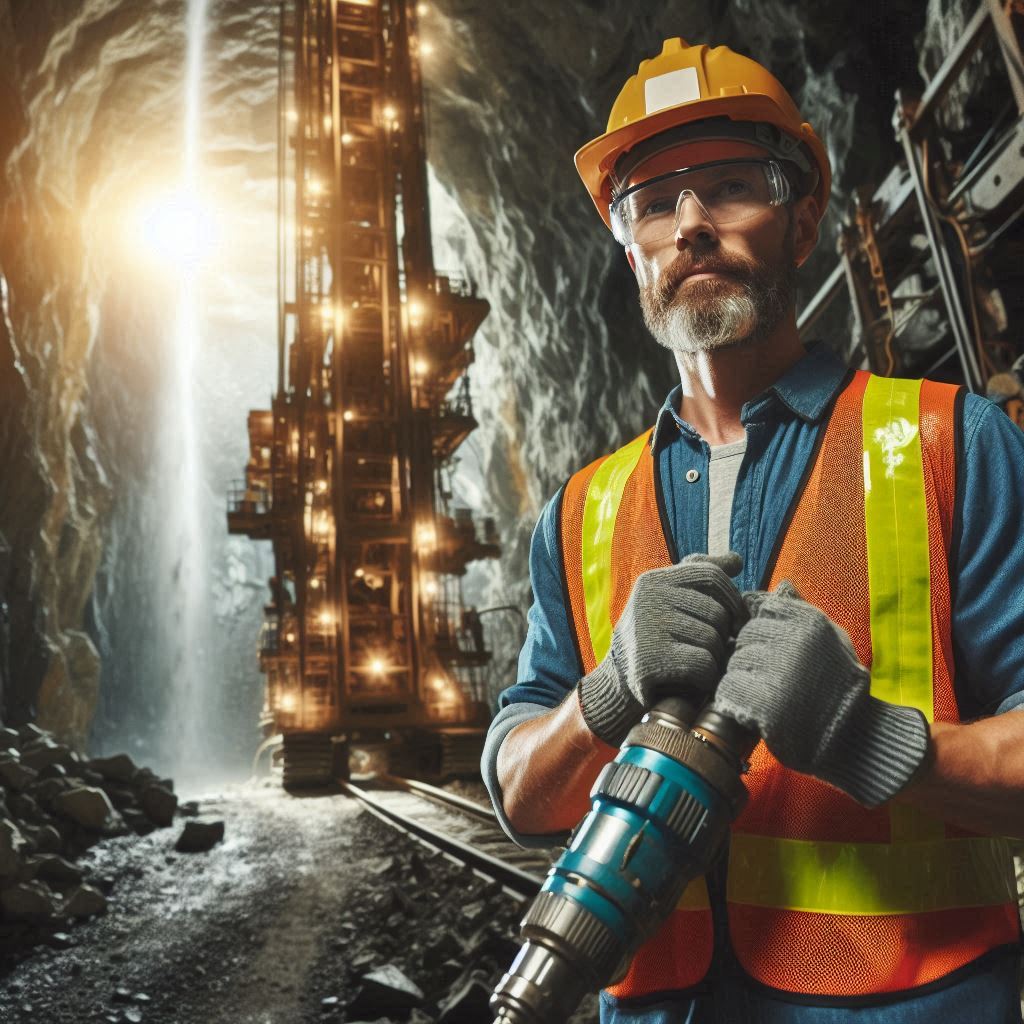
Important Tools and Technologies Used
As a mining engineer, you will rely on a variety of tools and technologies to carry out your job duties effectively.
These tools and technologies play a crucial role in the planning, design, and operation of mining projects.
Here are some of the important tools and technologies used in the field:
Computer-aided Design (CAD) Software
Computer-aided design software is essential for mining engineers to create detailed plans and models of mining sites.
CAD software allows engineers to design structures, equipment, and infrastructure with precision and accuracy.
By using CAD software, mining engineers can visualize the layout of the mine, optimize operations, and identify potential risks before they occur.
Geographic Information Systems (GIS)
Geographic Information Systems are powerful tools that allow mining engineers to analyze and visualize spatial data related to mining operations.
GIS software integrates geographic data, such as maps, satellite images, and geological surveys, to create comprehensive visualization models of mining sites.
By using GIS, mining engineers can assess environmental impacts, plan infrastructure, and optimize resource extraction processes.
Transform Your Career Today
Unlock a personalized career strategy that drives real results. Get tailored advice and a roadmap designed just for you.
Start NowMine Planning Software
Mine planning software is used by mining engineers to design and optimize mine layouts, production schedules, and resource management strategies.
This software enables engineers to simulate various scenarios, analyze data, and make informed decisions about the development and operation of mining projects.
By using mine planning software, mining engineers can maximize productivity, minimize costs, and ensure the safety of personnel within the mine.
Overall, the use of computer-aided design software, geographic information systems, and mine planning software allows mining engineers to enhance their productivity, efficiency, and safety in the field.
These tools and technologies are essential for the successful planning, design, and execution of mining projects, and they play a vital role in ensuring the sustainability and profitability of mining operations.
Job Outlook and Salary
Growing Demand for Mining Engineers
The demand for mining engineers is on the rise globally.
As natural resources continue to be essential for various industries, the need for skilled professionals in mining engineering has become increasingly evident.
Mining engineers play a crucial role in developing efficient mining processes and ensuring the sustainable extraction of minerals.
This growing demand results from the expansion of mining operations worldwide and the continuous need for technological advancements in the field.
As a result, mining engineers can expect a steady flow of job opportunities in both established and emerging markets.
Competitive Salaries in the Industry
Mining engineers enjoy competitive salaries that reflect their specialized skills and expertise.
The industry recognizes the critical role these professionals play in maintaining efficient and safe mining operations.
Entry-level mining engineers can expect attractive starting salaries, which increase with experience and additional qualifications.
Furthermore, the salaries often include bonuses and benefits such as health insurance, retirement plans, and performance incentives.
The financial rewards in mining engineering are substantial, making it an appealing career choice for those interested in both engineering and geology.
Potential for Career Advancement
Mining engineers have significant potential for career advancement.
With experience and further education, they can progress to higher positions within the industry.
Career paths can lead to roles such as senior mining engineer, project manager, or mine manager.
Additionally, mining engineers can specialize in areas such as mineral exploration, mine design, or environmental sustainability, allowing them to become experts in their chosen field.
The industry also offers opportunities for engineers to work internationally, broadening their experience and increasing their career prospects.
Continuous professional development and staying updated with industry trends are essential for achieving career advancement in mining engineering.
Read: Biomedical Engineer: Working in Healthcare Tech
Challenges Faced by Mining Engineers
Balancing Production Goals with Safety Concerns
Mining engineers constantly face the challenge of balancing production goals with safety concerns.
Their primary responsibility is to ensure that mining operations run efficiently and effectively.
However, they must prioritize the safety of the workforce above all else.
Achieving production targets often requires pushing machinery and personnel to their limits, but this can lead to increased risks.
Mining engineers must develop and implement safety protocols to minimize accidents and injuries.
They conduct regular safety inspections and drills to prepare workers for potential emergencies.
Striking the right balance between productivity and safety demands meticulous planning, thorough risk assessments, and adherence to strict safety regulations.
Environmental Impact Assessments
Mining engineers are responsible for conducting environmental impact assessments to evaluate the potential effects of mining activities on the surrounding environment.
This task involves analyzing the impact on local ecosystems, water resources, and air quality.
Mining engineers must ensure that mining operations comply with environmental regulations and minimize adverse effects.
They work closely with environmental scientists to develop strategies for mitigating environmental damage.
This includes implementing measures for waste management, land reclamation, and pollution control.
Mining engineers also monitor environmental indicators throughout the project to ensure ongoing compliance.
Balancing the need for resource extraction with environmental conservation requires a deep understanding of ecological principles and a commitment to sustainable practices.
Dealing with Volatile Market Conditions
Mining engineers must navigate the complexities of volatile market conditions that can significantly impact the profitability and viability of mining projects.
The prices of minerals and metals can fluctuate due to various factors, including global demand, economic conditions, and geopolitical events.
These fluctuations can affect project budgets, timelines, and overall feasibility.
Mining engineers need to stay informed about market trends and adjust their plans accordingly.
They work with financial analysts to develop strategies for managing financial risks and ensuring the economic stability of mining operations.
This may involve adjusting production levels, exploring cost-cutting measures, or diversifying resources.
The ability to adapt to changing market conditions while maintaining operational efficiency is a crucial skill for mining engineers.
In a nutshell, mining engineers face numerous challenges in their profession.
Balancing production goals with safety concerns requires careful planning and strict adherence to safety protocols.
Conducting environmental impact assessments involves mitigating the negative effects of mining activities on the environment.
Dealing with volatile market conditions demands a keen understanding of market dynamics and financial strategies.
By addressing these challenges, mining engineers play a vital role in ensuring the sustainability and profitability of mining operations.
Their expertise and adaptability are essential for navigating the complex and dynamic nature of the mining industry.
Career Opportunities for Mining Engineers
Mining engineers have diverse career opportunities across several sectors.
Their skills are highly sought after in various industries, leading to rewarding career paths.
Consulting Firms
Mining engineers often work with consulting firms.
These firms provide expert advice to mining companies and other clients.
Engineers in this role analyze geological data, evaluate mining operations, and recommend improvements.
They ensure that projects meet safety, environmental, and economic standards.
Consulting firms value mining engineers for their technical knowledge and problem-solving skills.
They may work on multiple projects, offering varied and dynamic job experiences.
This role often involves travel, as engineers visit different mining sites.
Mining Companies
Many mining engineers find careers within mining companies.
Here, they play a critical role in the planning and execution of mining operations.
They design mines, oversee construction, and ensure efficient resource extraction.
These engineers work closely with geologists, surveyors, and other professionals.
They ensure that mining operations are safe, efficient, and environmentally responsible.
Mining engineers also manage teams, oversee budgets, and ensure regulatory compliance.
They continuously seek ways to optimize processes and reduce costs.
This role offers opportunities for advancement to managerial positions within the company.
Government Agencies
Government agencies also employ mining engineers.
These roles typically involve regulatory oversight and policy development.
Engineers in government positions inspect mines to ensure compliance with safety and environmental regulations.
They develop and enforce mining laws and policies.
Their work helps to protect workers, communities, and the environment from the impacts of mining.
Additionally, they may conduct research and provide technical support to other government departments.
Working for a government agency often offers job stability and benefits.
It also provides a unique opportunity to influence public policy and industry standards.
Basically, mining engineers have diverse career opportunities.
Whether working for consulting firms, mining companies, or government agencies, their expertise is invaluable.
They play a crucial role in ensuring safe, efficient, and sustainable mining operations.
This field offers a variety of paths, each with its unique challenges and rewards.
Find Out More: Impact of Technology on Environmental Technician Roles
Find Out More: Career Advancement in Petroleum Engineering
Conclusion
Recap of the Job Duties of a Mining Engineer
Mining engineers play a crucial role in the extraction of minerals from the earth.
They design and develop mines, ensuring efficient and safe extraction processes.
Their duties involve planning mining operations, overseeing extraction activities, and managing mine safety.
They also collaborate with geologists to assess mineral deposits and determine the feasibility of mining projects.
Additionally, mining engineers are responsible for the maintenance and upgrading of mining equipment, ensuring it operates at peak efficiency.
They analyze production rates, evaluate the environmental impact, and develop strategies to mitigate any negative effects.
Through constant monitoring, they ensure compliance with regulations and optimize the use of resources.
In summary, a mining engineer‘s job duties encompass the entire mining process from planning to closure, ensuring efficiency, safety, and sustainability.
Emphasis on the Importance of Mining Engineers in the Industry
Mining engineers hold a pivotal position in the mining industry.
Their expertise is essential for extracting valuable minerals that fuel various industries, including technology, construction, and manufacturing.
Without mining engineers, the extraction processes would lack efficiency and safety, leading to potential hazards and environmental damage.
Their ability to design effective mining systems directly impacts the productivity and profitability of mining operations.
Mining engineers also play a critical role in ensuring environmental sustainability.
They develop methods to minimize the environmental footprint of mining activities, contributing to the industry’s long-term viability.
By maintaining safety standards and optimizing resource use, mining engineers protect both the workforce and the surrounding environment.
Their work supports economic growth by providing essential raw materials while ensuring responsible mining practices.
Encouragement for Those Interested in Pursuing a Career in Mining Engineering
A career in mining engineering offers a blend of challenges and rewards.
Aspiring mining engineers can look forward to a dynamic work environment where they solve complex problems and innovate.
The industry offers opportunities for career advancement and specialization in areas such as mine design, safety engineering, and environmental management.
With the ongoing advancements in technology, mining engineers are at the forefront of incorporating new tools and techniques to improve mining operations.
This career path is not only financially rewarding but also intellectually stimulating.
For those passionate about geology, engineering, and environmental science, mining engineering provides a unique intersection of these fields.
Additionally, the global demand for minerals ensures job security and diverse career opportunities worldwide.
Pursuing a career in mining engineering allows individuals to make significant contributions to both the industry and society, ensuring the sustainable and efficient extraction of vital resources.
[E-Books for Sale]
The Big Book of 500 High-Paying Jobs in America: Unlock Your Earning Potential
$19.99 • 500 High-Paying Jobs • 330 pages
Explore 500 high-paying jobs in America and learn how to boost your career, earn more, and achieve success!
See All 500 High-Paying Jobs of this E-Book
1001 Professions Without a Degree: High-Paying American Jobs You Can Start Now
$19.99 • 1001 Professions Without a Degree • 174 pages
Discover 1001 high-paying jobs without a degree! Unlock career tips, skills, and success strategies for just $19.99!

